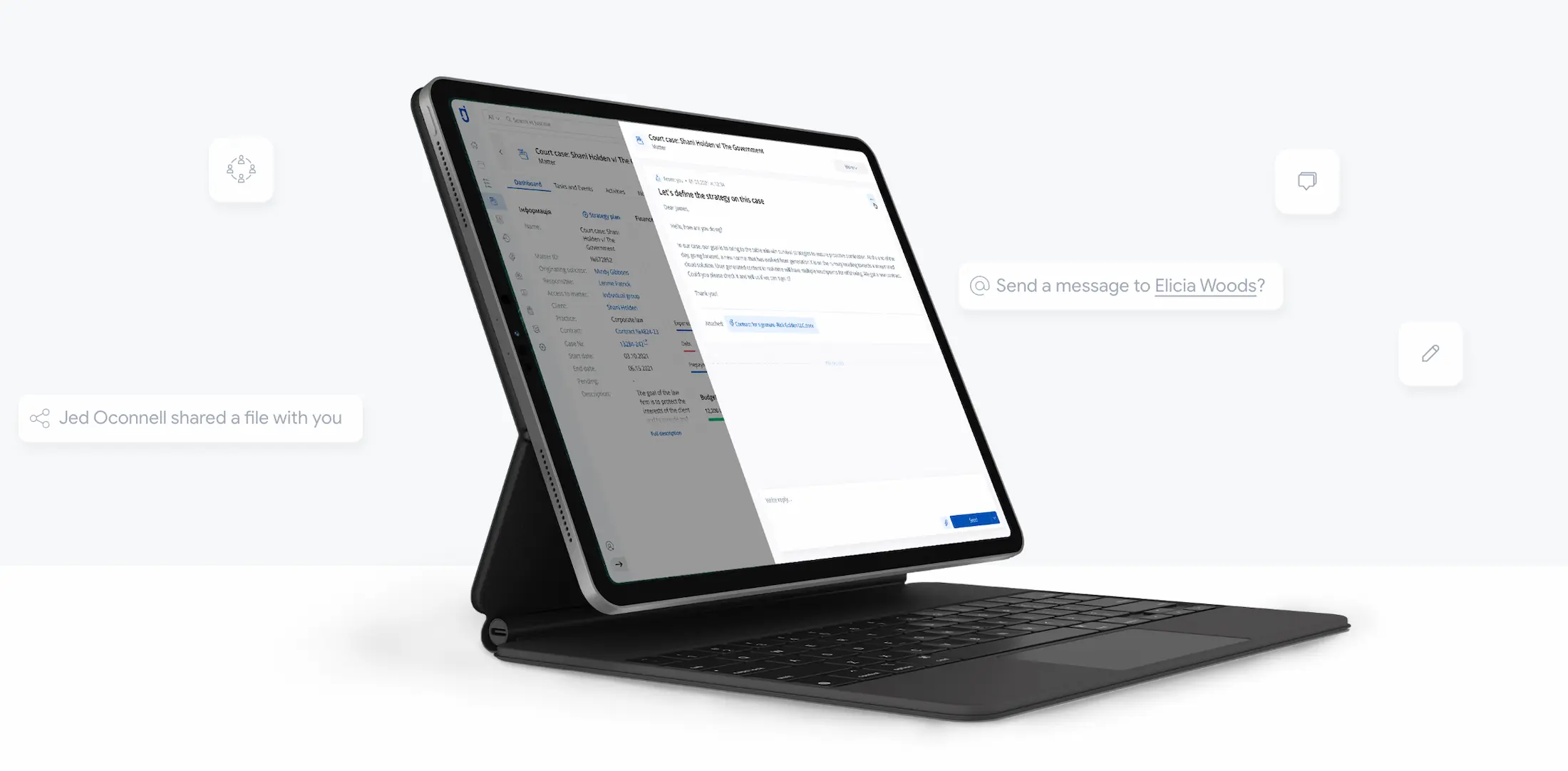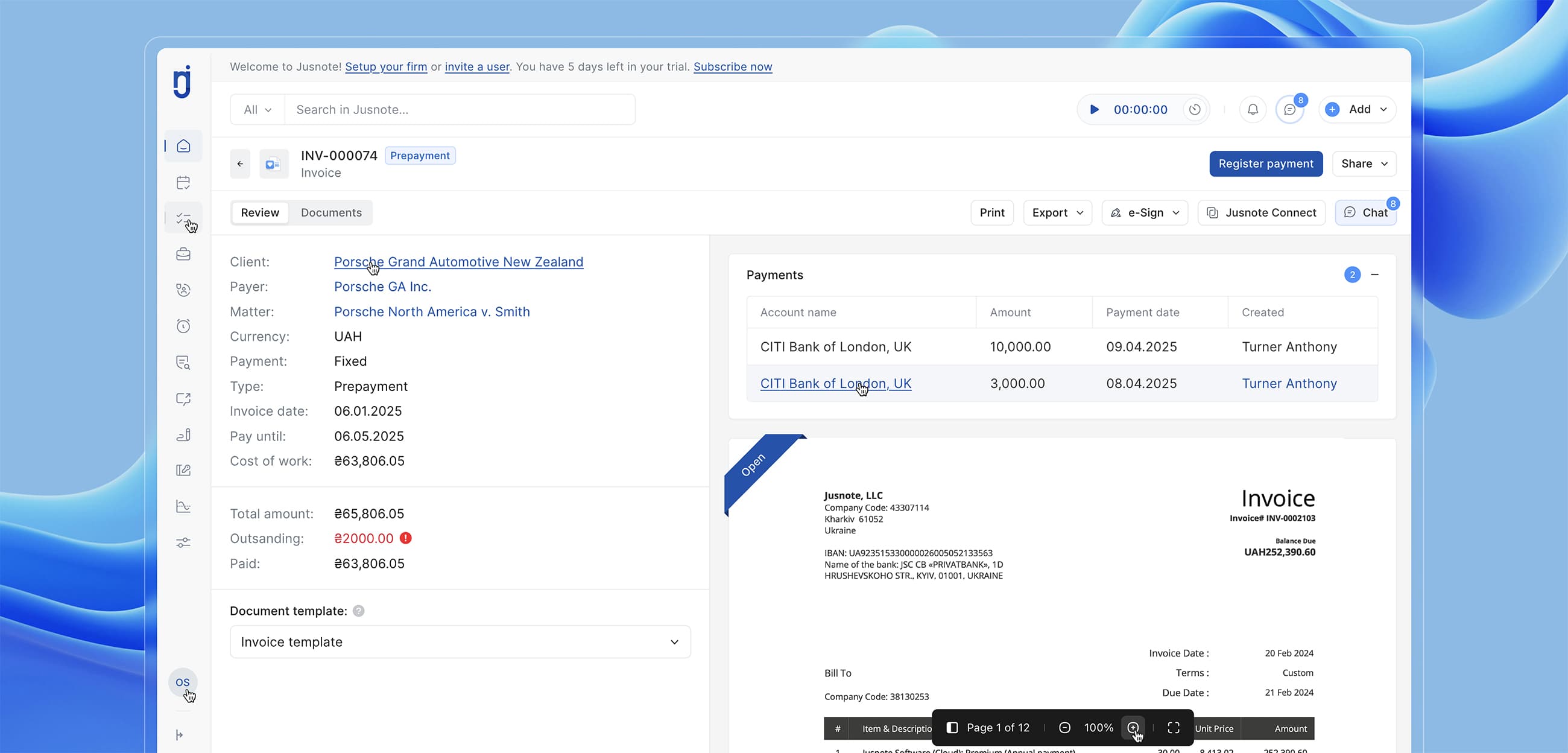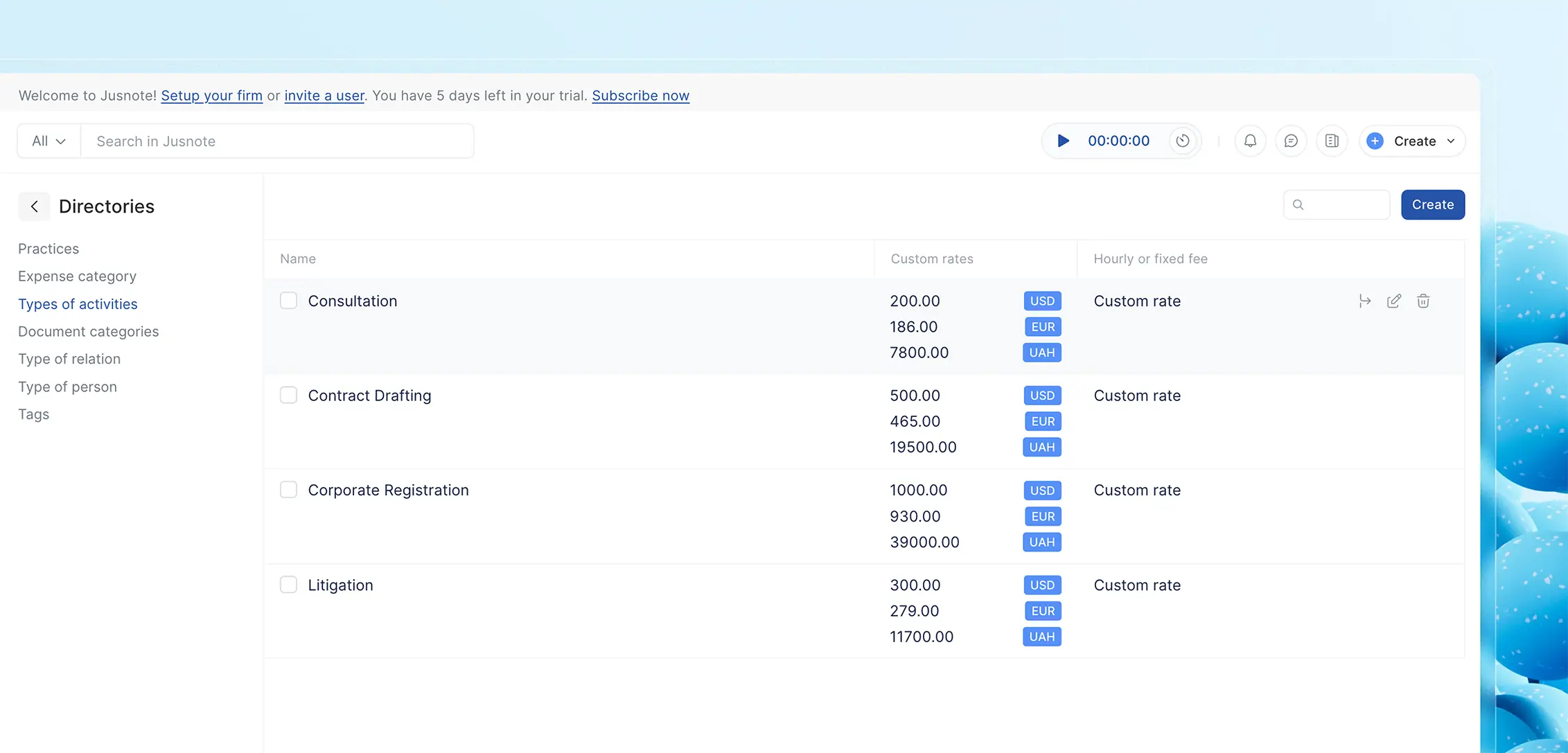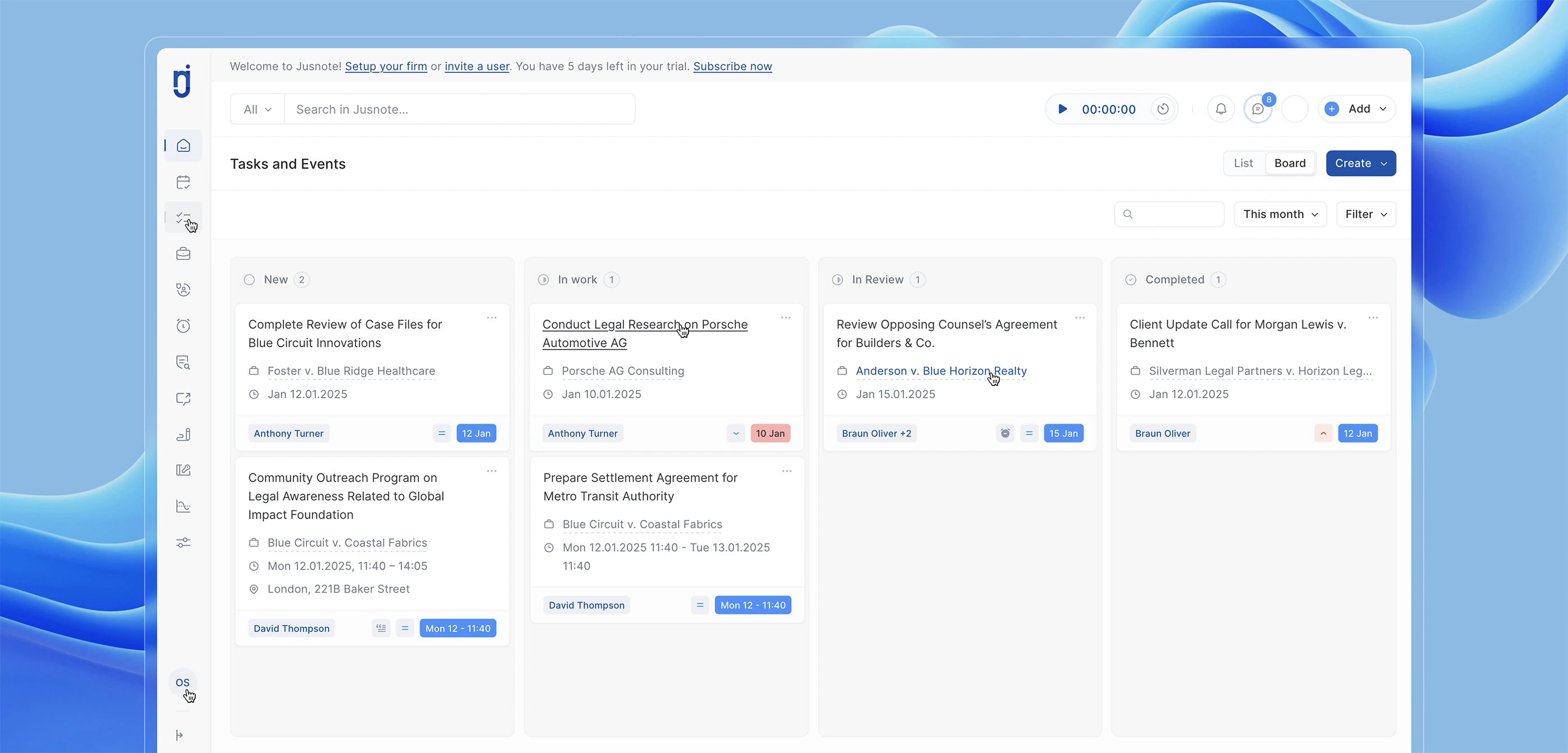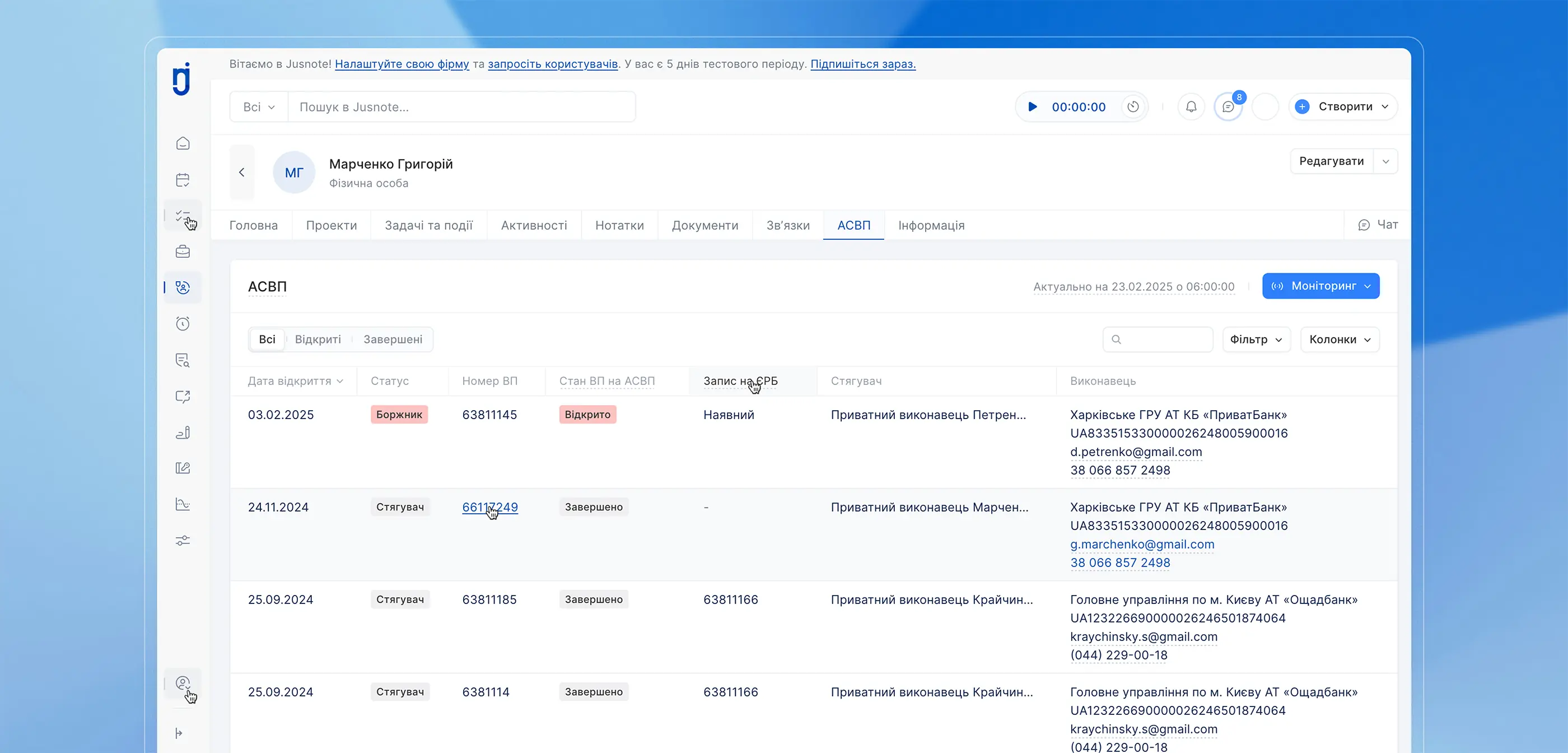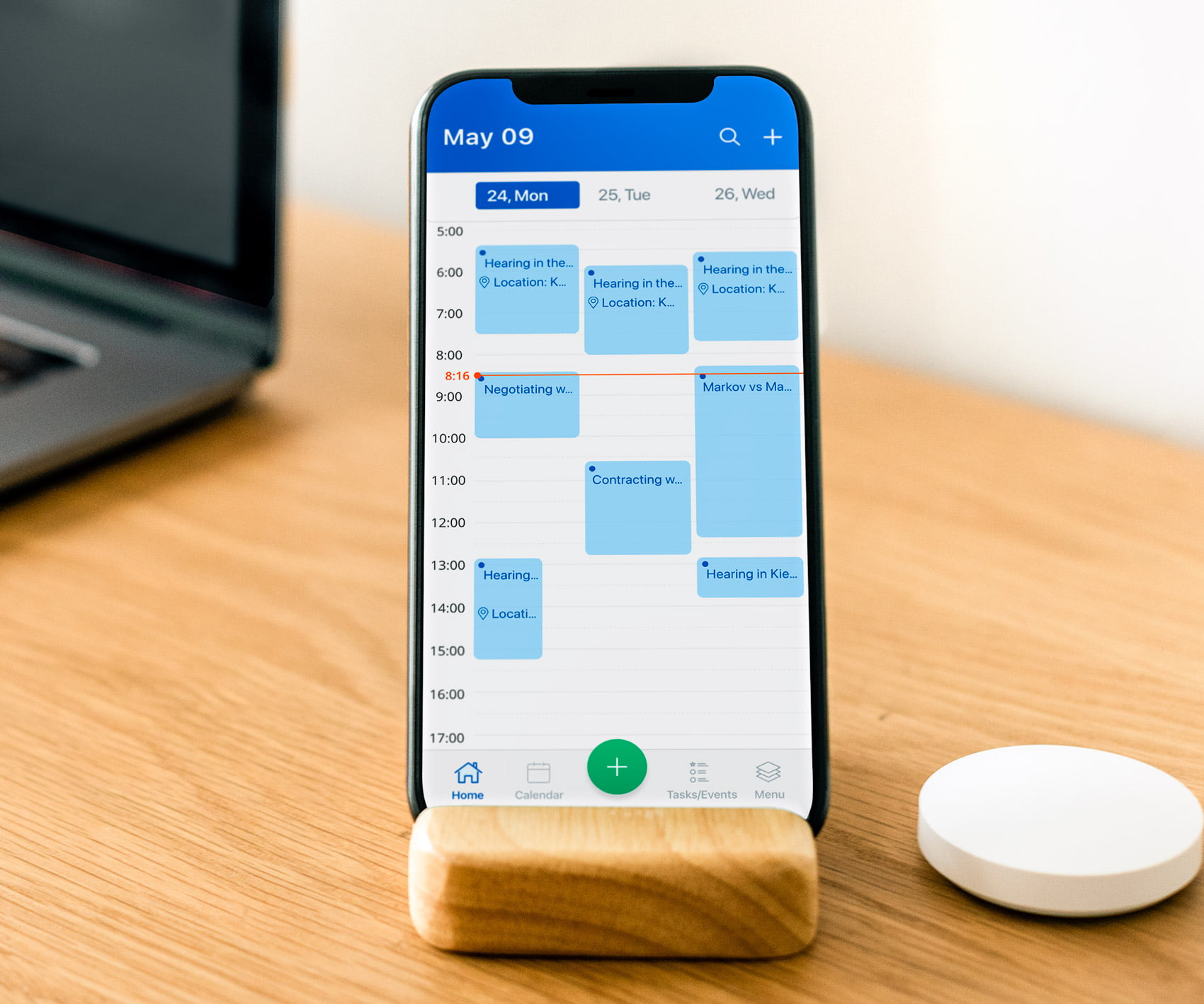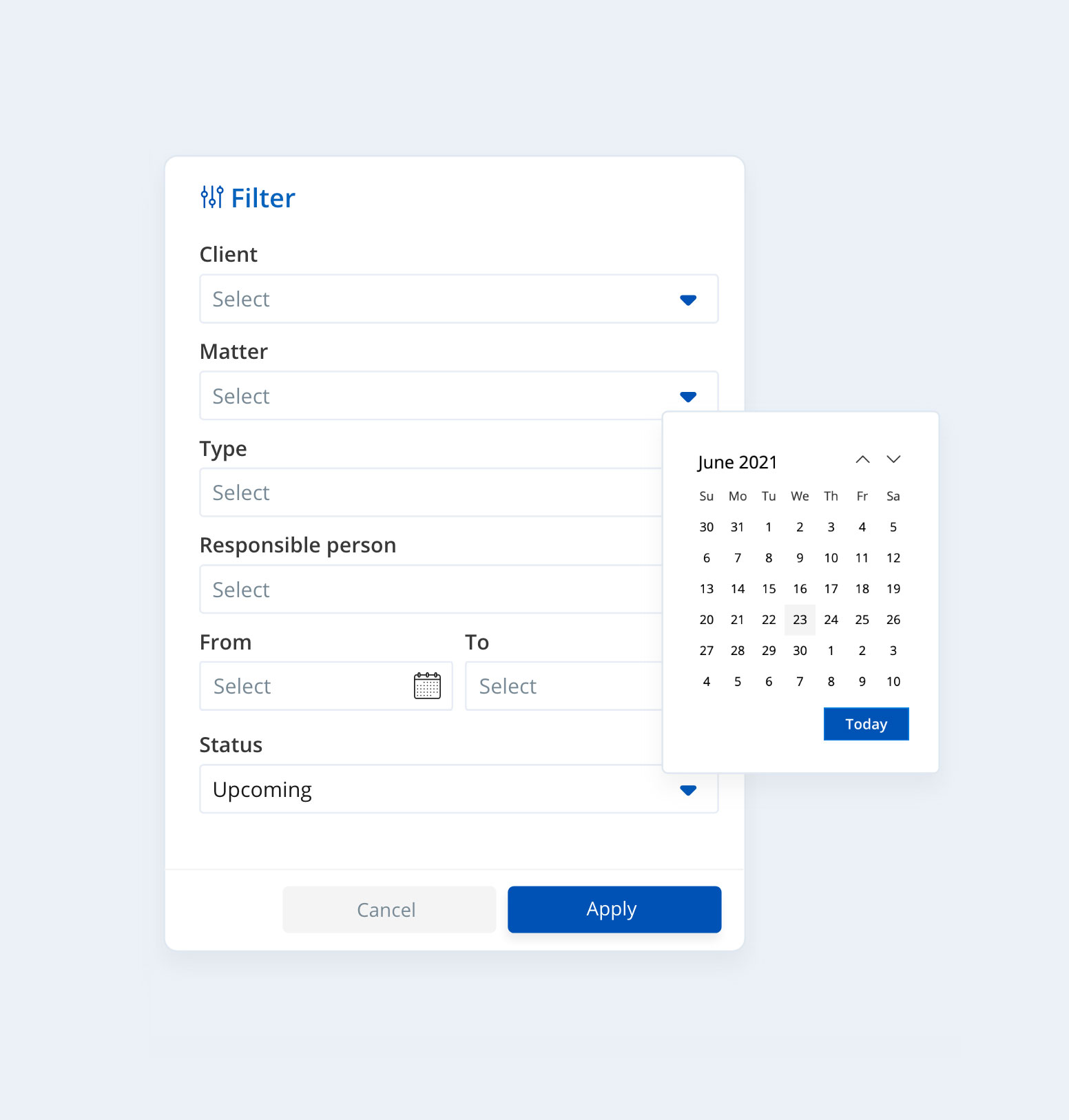BLOG
December 9, 2021
Challenges of managing a remote or hybrid law firm
Leaders who cannot offer flexible working options to their employees are at risk of being left behind. No wonder more than half of the law firms would allow their employees to work remotely full-time if they want to, and the majority agreed to let their workers work part-time even when the offices reopen.
In March 2020, amid the pandemic outbreak, businesses were forced to transit to an entirely new, virtual working model. Even highly regulated industries such as financial, healthcare, or legal were obliged to adapt to the new working reality dictated by pandemic restrictions. The greater part of transformations was seen in the working model among lawyers, attorneys, and other legal professionals, whose in-person communication has been playing a key role in the company’s effectiveness. Hence full-remote or hybrid working practices became the norm.
Now law firms are starting to apply work-from-home policies mixing in-office and out-office hours. Leaders who cannot offer flexible working options to their employees are at risk of being left behind. No wonder more than half of the law firms would allow their employees to work remotely full-time if they want to, and the majority agreed to let their workers work part-time even when the offices reopen.
Remote work made sense in terms of cost savings. For example, rent prices keep going up. Stakeholders can save thousands of dollars annually per employee due to reduced rent, less turnover, fewer paid sick days, and restrictions due to the geographical location.
Still, there are two sides of the same coin.
This sudden shift presented its fair share of challenges. Let’s get into it
1. Technology literacy
With the lion’s share of attorney-client interactions transferred online came a demand for fast and effective access to documentation and on-demand communication between client and lawyer without in-person meetings. The question of cybersecurity became a major concern. Law firms are now supposed to accelerate their digital adaption and implement tools to effectively conduct legal operating practices.
2. The concern of data privacy
Lawyers and law firms need to store in-house documentation, clients’ confidential data, and intellectual property in a well-organized and secure way. In the worst scenario, failing to meet data security standards might result in decreasing loyalty or a loss of customers.
3. Communication gap
A lot of duties (which prior to the pandemic were managed face-to-face) are now replaced with other means of communication such as mailing, messengers, videoconferencing, etc. Digital channels proved to be game-changers, in some respects, especially in terms of time-saving or flexibility in the workplace. But these means might sometimes lead to problems in communication among colleagues and with clients. Someone who is not that quick at digital adoption might be missing out on vital details or relationship-building opportunities.
The right legal software can help maximize productivity even while working from home. Jusnote, the most comprehensive and easy-to-use legal system on the market, is created by industry professionals who understand all peculiarities in the regulatory and legal environments.
4. Onboarding and training process
Any contacts between lawyers, attorneys, or legal assistants have been mostly associated with “live” conversations and strategy sessions at the courtroom or the conference table. The before-mentioned types of interaction constitute the very essence of the lawyers’ workflow. In this respect, mentoring new interns in remote settings might become a complicated task.
To ensure quality education, onboarding, and training sessions for remote or hybrid workers, law firms should use and operate a Learning Management System (LMS) and grant access within an organization.
Hybrid and remote work model is here to stay

A lot of law companies, though, were forced to adopt the remote work culture soon after the start of the pandemic – and then turned it into the preferred option. Probably, we shouldn’t expect a full-time office return – remote and hybrid work models will likely remain. Professionals in law were given a chance to make clients appreciate and make use of legal virtual services as well as optimize their work environment.
Jusnote is helping thousands of lawyers worldwide attain superior results in their daily practice, letting innovative technology change the nature of work and reduce the number of repetitive manual tasks. Regardless of what working mode you are in, the system guarantees the highest security of your company’s data and a user-friendly interface that opens up new perspectives for legal professionals.
![]()
Try Jusnote today
Jusnote is helping thousands of lawyers worldwide attain superior results in their daily practice. Sign up



 Jusnote Newsroom
Jusnote Newsroom  Search Newsroom
Search Newsroom
 Back to all publications
Back to all publications



